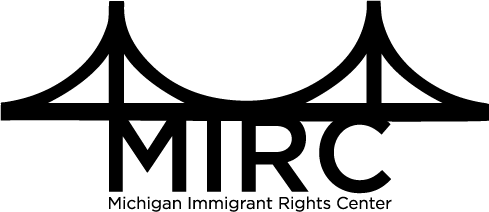Embracing Family Unity and Resilience

I was born in 1985 in “Mesa Grande”, a refugee camp in Honduras. I was born there because, during the Civil War in El Salvador (1980-1992), my family had to flee from the state-led Armed Forces in 1981. We repatriated to our home country of El Salvador in 1988 with the support of the United Nations High Commissioner for Refugees (UNHCR). This was four years before the end of the Civil War in 1992. My experience inspired me to advocate for immigrant and refugee rights globally.
I vividly remember how normalized violence was at that time. Nowadays, with the recent crisis of children being taken away from their parents when presenting themselves at the Mexico-US border, I find myself thinking that we are facing another human rights violation crisis. A crisis that is stemming from normalized violence. This needs to change. Currently, in the United States, citizens hear little about why people want to risk their lives in order to enter the country as well as about their experiences and hardships before and during their journey.
Most immigrants don’t necessarily want to leave their home communities. How many of us want to leave home? Most immigrants are fleeing from various types of violence. One type of violence immigrants face is structural violence through bureaucratic institutions and organized practices that marginalize them and perpetuate endemics like extreme poverty. With violence and trauma chasing behind them, many immigrants do not have options. They do not get to choose. Instead, they are forced to leave.
There is a dichotomy within the US: alien and citizen. Immigrants within the US are portrayed as aliens. However, the very same immigrants built the economy and society of the US. While we appear to be “different,” we are very similar though with different life experiences and journeys. We all have the common goal of having access to what we need to fulfill our basic human rights: the ability to live at peace, access employment, education, health care, and protect our family unity. Local institutions from our countries of origin have failed to fulfill those needs. This is a form of systemic violence best known as extreme poverty. There are many other factors that have historically forced people to migrate. Does this mean the US has to be responsible? I think as a global human community we are responsible for one another. Immigrants have existed since the beginning of time. We have to learn how to recognize our collective humanity.
[[{"fid":"639","view_mode":"default","fields":{"format":"default","alignment":"","field_file_image_alt_text[und][0][value]":"Za’atari Syrian Refugee Camp, Jordan. Joel Bergner. ","field_file_image_title_text[und][0][value]":false},"link_text":null,"type":"media","field_deltas":{"1":{"format":"default","alignment":"","field_file_image_alt_text[und][0][value]":"Za’atari Syrian Refugee Camp, Jordan. Joel Bergner. ","field_file_image_title_text[und][0][value]":false}},"attributes":{"alt":"Za’atari Syrian Refugee Camp, Jordan. Joel Bergner. ","height":487,"width":1200,"style":"width: 700px; height: 284px;","class":"media-element file-default","data-delta":"1"}}]]
Za’atari Syrian Refugee Camp, Jordan. Joel Bergner
I understand how challenging it can be to see immigrants as good people when citizens in the US learn the opposite about us. At the Michigan Immigrant Rights Center (MIRC), we support family unity. Thousands of families have been separated in the US due to deportation without relief. Mixed-status families go through multiple trauma-related emotions when one of their parents are put into the deportation process. Emotions like fear and anxiety are common. I deeply empathize with these emotions because of my own experience.
The Salvadoran Civil War was supported by US government administrations. I recall being in the middle of a war-zone at my humble school. During those moments, I felt fear deeply in my body. I was not at home with my family where I always felt safe. In the midst of my fear, I was struck by the reactions of my caring teachers. They were almost children themselves. They did not express their fear in front of us. Instead, they invited us, with respect and love, to sing one of my favorite kindergarten songs: “De colores.” "De Colores" carried all of us to a peaceful moment, turning tears into song. I felt a sense of protection. These women showed me that even during adversity, collective hope created through solidarity can make us resilient and empowered.
MIRC help so many immigrants who are seeking legal assistance to live permanently and freely in the US. My time working at MIRC --surrounded by a great team of attorneys, law clerks, and volunteers, along with other legal service providers--has inspired me to celebrate our mission more: to build a thriving Michigan where immigrant communities experience equity and belonging. As an organization, we are in the hearts of thousands of immigrants who appreciate the support we provide to ensure family unity. Our organization represents for them in a way what the UNHCR means to me-- an institution of supportive and caring human beings who advocate for those who lack the privileges that US citizens have. Our team reminds me of my two teachers who gave me a sense of protection while my school was being bombed. We are successful because we support immigrants so that they can have a dignified life. I honor immigrants’ stories and I am grateful to be part of this wonderful team that has created ongoing positive change in the life of many immigrants for over nine years in Michigan.
[[{"fid":"640","view_mode":"default","fields":{"format":"default","alignment":"","field_file_image_alt_text[und][0][value]":"Community Mural at Central Valley in California. Joel Bergner","field_file_image_title_text[und][0][value]":false},"link_text":null,"type":"media","field_deltas":{"2":{"format":"default","alignment":"","field_file_image_alt_text[und][0][value]":"Community Mural at Central Valley in California. Joel Bergner","field_file_image_title_text[und][0][value]":false}},"attributes":{"alt":"Community Mural at Central Valley in California. Joel Bergner","height":450,"width":900,"style":"width: 700px; height: 350px;","class":"media-element file-default","data-delta":"2"}}]]
Community Mural at Central Valley in California. Joel Bergner

